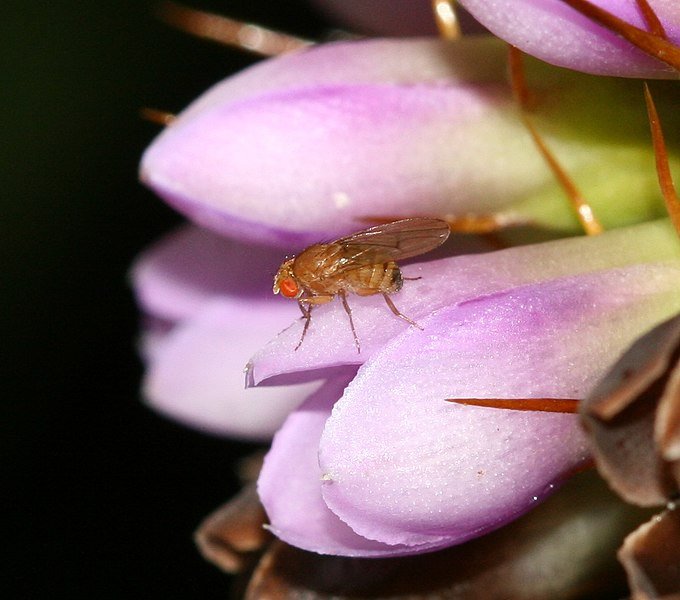Parthenogenesis is asexual reproduction in which genetic contribution from male is dispensed with. Eggs develop to offspring on their own without being fertilised by a sperm. This is seen in nature in some species of plants, insects, reptiles etc. In facultative parthenogenesis the animal switch from sexual to parthenogenetic reproduction under difficult situations. Non-parthenogenetic species reproduce sexually and do not give “virgin births”. In a study reported recently, researchers achieved induction of facultative parthenogenesis and “virgin births” in Drosophila melanogaster (a non-parthenogenetic species) through genetic engineering. The research team identified involved genes and demonstrated for the time first time how expressions of involved genes influence induction of facultative parthenogenesis in an animal.
Parthenogenesis is a form of asexual reproduction which does not involve fertilisation of an egg by a sperm. The embryo is formed by the female on her own (without genetic contribution from a male) which develops to give “virgin birth”. Parthenogenesis could be either obligate or facultative. In case of facultative parthenogenesis, the animal switch from sexual to parthenogenetic reproduction under difficult situations while obligate parthenogenesis is the situation when reproduction is mainly asexual through parthenogenesis.
“Virgin births” without fertilisation by sperm may sound strange but this form of reproduction in which male is dispensed with is naturally seen in many species of plants, insects, replies etc. Non-pathogenetic species do not give “virgin births” though it has been artificially induced in the eggs in the laboratory to give birth to frog and mouse offspring. These instances of artificial parthenogenesis in frog and mice did not make female frog and mice fit to give virgin births on their own as only their eggs were induced to undergo embryogenesis in the laboratory conditions. This has changed now with the report (published on 28th July 2023) of non-parthenogenetic animals giving “virgin births” following genetic engineering. This is first such case of sexually reproducing animal turning parthenogenetic because of manipulations in their genes.
Two species of Drosophila were used in this study. Drosophila mercatorum species, which has sexually reproducing strain and parthenogenetically reproducing strain (facultative), was used to identify genes involved in parthenogenesis while Drosophila melanogaster which is a non-parthenogenetic species was used for gene manipulation to produce parthenogenetic fly.
The research team sequenced genomes of two strains of Drosophila mercatorum and compared gene activity in eggs of the two strains. This led to identification of 44 candidate genes with potential roles in parthenogenesis. Next was to test if manipulating candidate gene homologs would induce facultative parthenogenesis in Drosophila melanogaster. The researchers found a polygenic system – facultative parthenogenesis in Drosophila melanogaster (a non-parthenogenetic species) was triggered by increased expression of the mitotic protein kinase polo and decreased expression of a desaturase, Desat2 that was enhanced by increased expression of Myc. The eggs grew parthenogenetically mainly to triploid offspring. This is first demonstration of genetic basis of facultative parthenogenesis in an animal as well as its induction through genetic engineering.
***
Sources:
- Sperling A.L., et al 2023. A genetic basis for facultative parthenogenesis in Drosophila. Current Biology Published: 28 July 2023. DOI: https://doi.org/10.1016/j.cub.2023.07.006
- University of Cambridge 2023. News- Scientists discover secret of virgin birth, and switch on the ability in female flies. Available at https://www.cam.ac.uk/research/news/scientists-discover-secret-of-virgin-birth-and-switch-on-the-ability-in-female-flies Accessed on 2023-08-01.
***




































